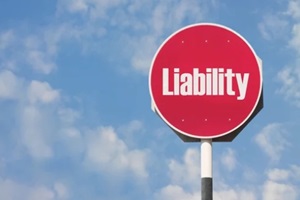 General liability (GL) insurance offers businesses protection against financial losses from third-party property damage, bodily injury, and advertising injury claims.
General liability (GL) insurance offers businesses protection against financial losses from third-party property damage, bodily injury, and advertising injury claims.
While GL policies are not required by law in Hawai`i, they are recommended to protect against common risks during normal business operations including fires, natural disasters, thefts, and acts of vandalism.
Before buying general liability insurance in Hawai`i, it is important to consider coverage options, legal requirements, and the right limits based on the needs of the business.
Follow these steps to find the best general liability insurance plan for your small business:
1. Identify Risks
Before purchasing a general liability insurance plan it is important to know your business’s top priority risks. These risks can vary based on the business size, industry, and similar factors.
For example, restaurants should always carry GL insurance due to high foot traffic, which can increase the risk of bodily injury.
In addition, consider risks that are prevalent in certain areas. Depending on exact location, many businesses in Hawai`i are at risk for natural disasters such as hurricanes and wildfires.
2. Choose the Right Agent
Choose an experienced agent invested in helping the business compare their options and choose coverages that will best protect the company’s finances and reputation.
Those locally situated can better determine risks specific to your business location.The best agents stand out as they take the time to match policies to the business’s specific needs.
3. Prioritize Coverage Over Cost
Although cost is a major factor when making any business related purchase, quality coverage should be the priority.
Choosing the least expensive policy may save money upfront, but may leave businesses having to pay out of pocket for claims over the policy limits. It is not always necessary to buy the most expensive policy, but it is important to compare plans to balance cost and quality.
4. Know Your Budget
 The cost of general liability insurance can vary significantly depending on the business’s location, industry, risk exposure, and similar factors.
The cost of general liability insurance can vary significantly depending on the business’s location, industry, risk exposure, and similar factors.
Businesses must have a budget planned before comparing insurance plans; this allows them to know how much they can spend on coverage for protection. An experienced insurance agent can help business owners better understand the amount of coverage their business needs.
5. Compare Policy Limits
When reviewing general liability insurance policies, business owners will have to understand aggregate and per-occurrence limits. An aggregate limit is the maximum amount the policy will cover in a single year.
A per-occurrence limit is the maximum amount that the plan will cover for each incident. Some GL policies also have sub-limits that put individual limits on each type of incident. While most limits are standard, this is not always the case. Carefully compare limits and choose one that will provide the best protection.
6. Understand Deductibles
A deductible is the amount a business is responsible for paying before the insurance policy kicks in to cover the remainder of the loss up to the policy limit.
Most commercial insurance policies have a deductible, which can be low or high, depending on how the policy is set up. The basic formula is, the higher the deductible, the lower the premium.
7. Review “Scope of Coverage”
Review all sections of the insurance policy carefully, especially the scope of coverage. While most GL insurance policies cover standard property damage and bodily injury claims, others may offer broader coverage options that provide complete protection for the business.
If the business has multiple locations, it is important to understand if the policy will cover a single or all business locations.
8. Read the Fine Print
If business owners overlook the fine print on commercial policies, this may lead to unexpected fees and coverage gaps.
Review the policy to understand how theft and damage are handled, if there are coverage restrictions or special limits for injuries that occur in-office, and if the policy offers seasonal coverage increases for companies that experience “busy” seasons.
9. Go Over Exclusions
 Commercial general liability insurance policies often include a list of exclusions. These are instances that the insurance plan will not cover.
Commercial general liability insurance policies often include a list of exclusions. These are instances that the insurance plan will not cover.
For example, most GL policies do not cover expected or intended damage, contractual liability, liquor liability, workers compensation, employer’s liability, and electronic data. If an incident involves an item listed under exclusions, the claim will likely be rejected.
Reach Out to Atlas Insurance Agency for Your General Liability Insurance
Buying general liability insurance requires detailed work, even for seasoned business owners. The local insurance agents at Atlas Insurance will gladly share their experience with business owners in Hawai`i answering any questions or concerns to find the best general liability insurance plan for their business.
For more information or to schedule a consultation, contact Atlas Insurance Agency today at (808) 400-6634 or request an insurance quote online.
